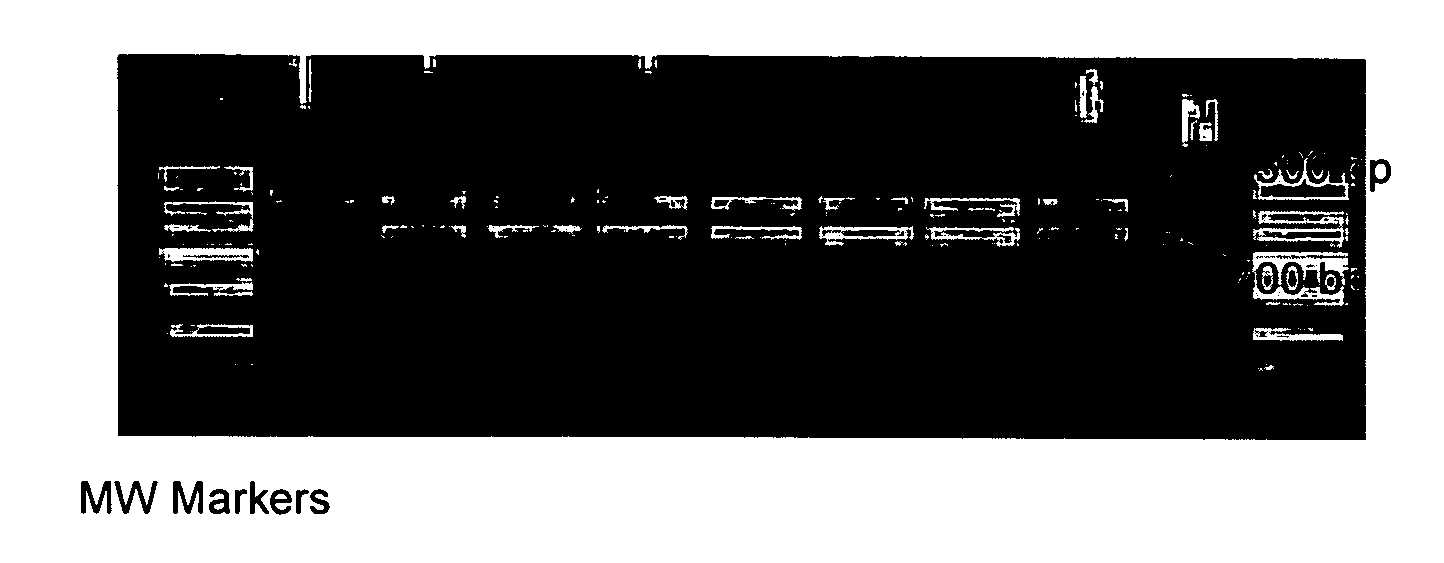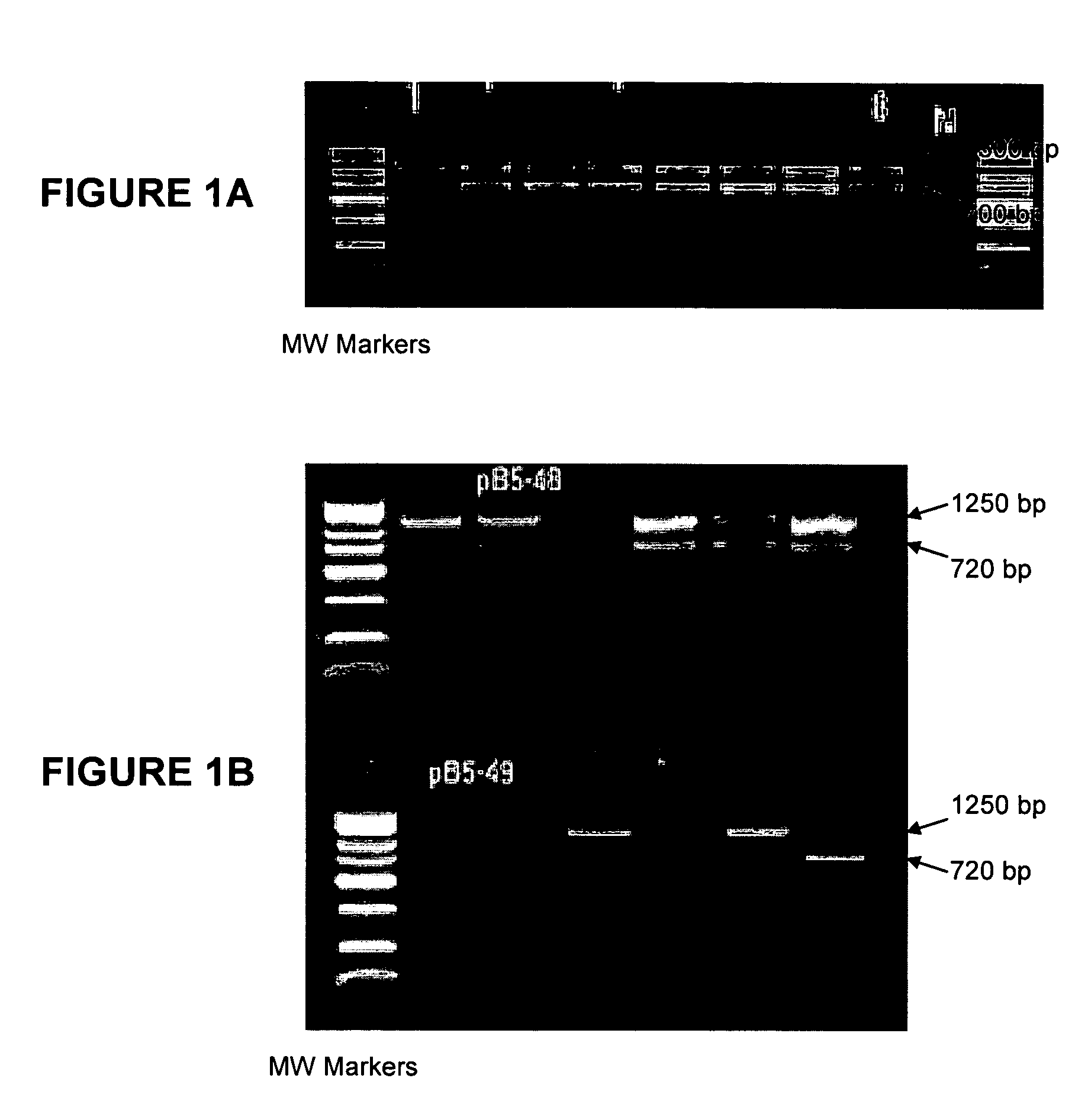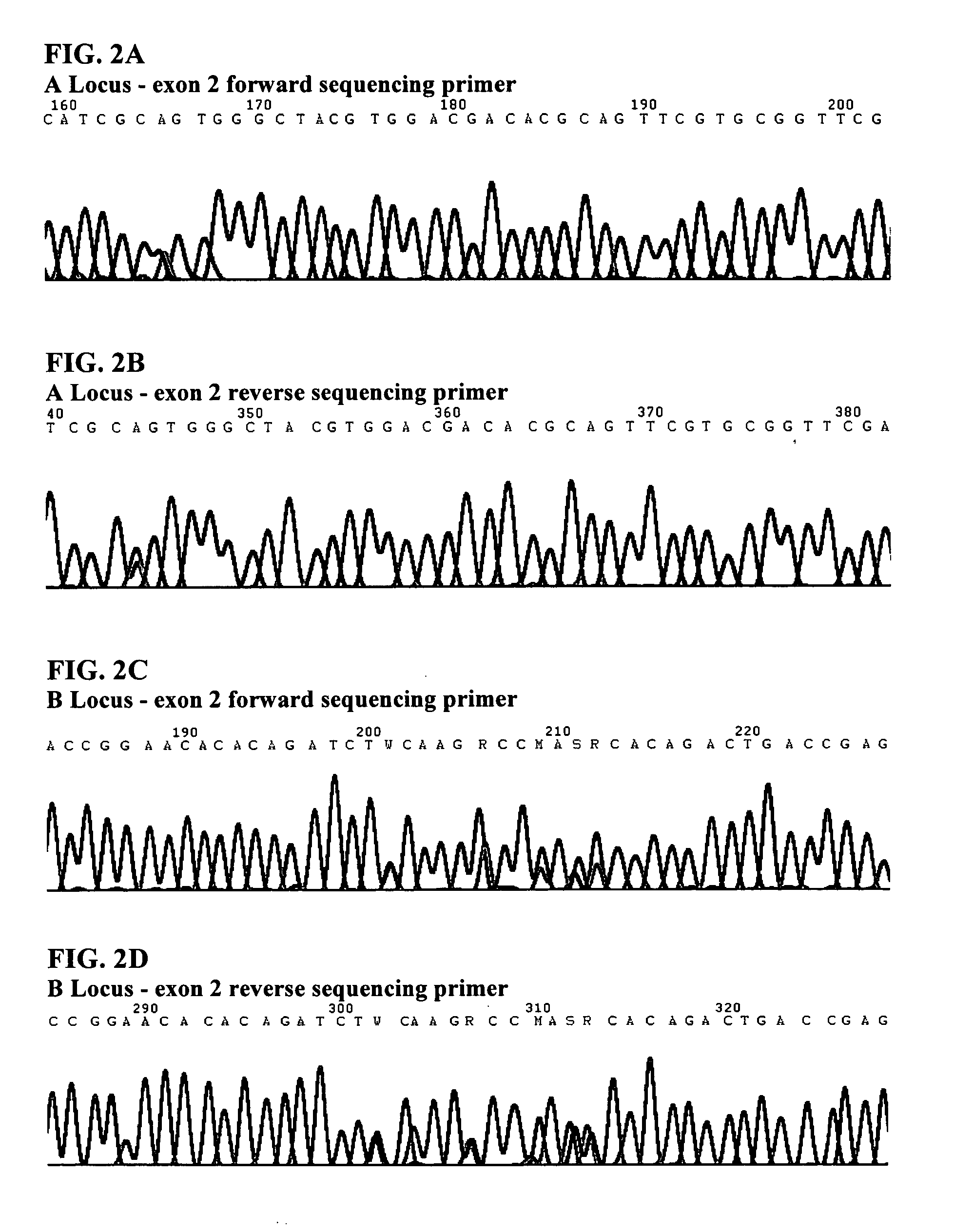Primers, methods and kits for amplifying or detecting human leukocyte antigen alleles
a technology of human leukocyte antigen and primers, which is applied in the field of primers, methods and kits for amplifying or detecting human leukocyte antigen alleles, can solve the problems of time-consuming sbt techniques used for allele identification, and the inability to complete resolution of all hla alleles at a particular locus, etc., and achieves enhanced specificity, more abundant products, and flexibility.
- Summary
- Abstract
- Description
- Claims
- Application Information
AI Technical Summary
Benefits of technology
Problems solved by technology
Method used
Image
Examples
example 1
Amplification of Alleles of A, B and DR Loci
[0061] This example demonstrates the use of the present primer pairs and primer sets in non-multiplex and multiplex amplification of HLA alleles of the A, B and DR loci. In each instance, the primers were used in the PCR protocol outlined above.
A. A Locus Non-multiplex Amplification
[0062] Amplification Primers: The single 5′ primer (pA5-3) begins in the A Locus 5′ untranslated region and ends in exon 1. The single 3′ (pA3-29-2) primer is in exon 5. This is a locus specific amplification and all alleles in the A locus are amplified with this primer set.
[0063] Sequencing Primers: All sequencing primers, including three forward sequencing primers and three reverse sequencing primers are located in the introns flanking exons 2, 3 and 4 (Aex2F, Aex2R-4, Aex3F-2, Aex3R-3, Aex4F, and Aex4R-5). The multiplexing of the sequencing primers allows bidirectional sequencing of exons 2, 3 and 4.
B. B Locus Multiplex Amplification
[0064] Amplificati...
example 2
A and B Locus Multiplex Amplification
[0071] This example demonstrates the use of the present primer pairs and primer sets in the multiplex amplification of HLA alleles of the A and B loci. In each instance, the primers were used in the PCR protocol outlined above, using the master mixes shown.
ReagentAmountA. A LocusPurified water9.3 μl10× PCR Buffer2.5 μlMagnesium Chloride1.5 μlDMSO2.0 μldNTP (50% deazaG)2.5 μl5′ Primer- pA5-50.5 μl3′ Primer- pA3-310.5 μl5′ Primer- pA5-30.5 μl3′ Primer- pA3-29-20.5 μlFastStart Taq0.2 μlGenomic DNA5.0 μl25 μl total reaction volumeB. B LocusPurified water9.3 μl10× PCR Buffer2.5 μlMagnesium Chloride1.5 μlDMSO2.0 μldNTP (50% deazaG)2.5 μl5′ Primer- pB5-48 or 5-490.5 μl3′ Primer- pB3-240.5 μl5′ Primer- pB5-55 + 40.5 μl3′ Primer- pA3-20, 21, 22, 230.5 μlFastStart Taq0.2 μlGenomic DNA5.0 μl25 ul total reaction volume
[0072] Both A locus and B locus samples were run in a PE 9700 thermal cycler under the following conditions:
Initial Denaturation95° C. 4 ...
PUM
| Property | Measurement | Unit |
|---|---|---|
| melting temperature | aaaaa | aaaaa |
| melting temperature | aaaaa | aaaaa |
| melting temperature | aaaaa | aaaaa |
Abstract
Description
Claims
Application Information
 Login to View More
Login to View More - R&D
- Intellectual Property
- Life Sciences
- Materials
- Tech Scout
- Unparalleled Data Quality
- Higher Quality Content
- 60% Fewer Hallucinations
Browse by: Latest US Patents, China's latest patents, Technical Efficacy Thesaurus, Application Domain, Technology Topic, Popular Technical Reports.
© 2025 PatSnap. All rights reserved.Legal|Privacy policy|Modern Slavery Act Transparency Statement|Sitemap|About US| Contact US: help@patsnap.com



